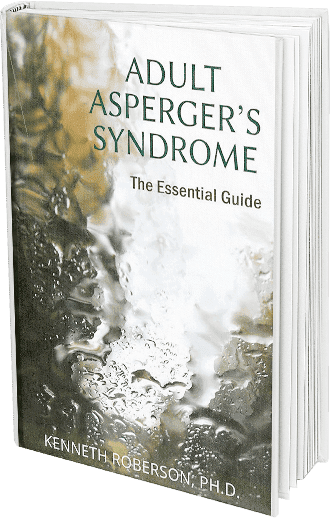
Depression can be a formidable challenge for many people, yet for adults with Autism Spectrum Disorder (ASD), it presents a unique set of hurdles. Understanding and managing depression within this context requires not only compassion and empathy but also a specialized approach that respects the nuances of ASD. This article aims to shed light on the complexities of managing depression in adults with autism, offering insights and strategies to empower and support adults navigating this dual challenge.
Understanding Depression in Adults with Autism
Depression in adults with autism is a multifaceted issue that demands a deep understanding of both conditions. Autism, a neurodevelopmental disorder characterized by differences in social interaction, communication, and repetitive behaviors, can influence how depression manifests and is experienced by an individual.
Interplay Between Autism and Depression
The interplay between autism and depression is complex, with each condition potentially complicating the other. Adults with autism may find the social and communication challenges they face to be sources of stress and anxiety, which can, in turn, contribute to feelings of depression. Conversely, depression can magnify the difficulties experienced by someone with autism, creating a cycle that can be challenging to break.
Recognizing the Signs
Recognizing depression in adults with autism requires an understanding of both the typical symptoms of depression and how these may be uniquely expressed in someone with ASD. Symptoms can include persistent sadness, changes in sleep or eating patterns, and loss of interest in activities previously enjoyed. However, in adults with autism, these symptoms may be accompanied by increased sensitivity to sensory input, a decline in the intensity of engagement with special interests, heightened social withdrawal beyond their usual baseline, and a greater display of irritability or agitation.
Cognitive Aspects and Emotional Processing
The cognitive aspects of autism, such as a preference for routine and challenges with change, can exacerbate feelings of depression. Additionally, many adults with autism experience alexithymia, a condition that makes it difficult to identify and articulate one’s emotions, further complicating the diagnosis and management of depression.
Enhanced Coping Strategies for Depression in Adults with Autism
When it comes to managing depression in adults with ASD, a multifaceted approach that respects the unique experiences of those on the spectrum is essential. Below, are comprehensive strategies designed to empower people with autism as they navigate the challenges of depression.
Tailored Professional Support
The cornerstone of effective depression management is seeking support from professionals who specialize in both autism and mental health. Therapies specifically adapted for adults with ASD, can offer significant benefits. These adaptations may include more structured sessions, visual aids, and a focus on concrete examples. For some, medication may also play a role in managing symptoms, under careful supervision from healthcare providers.
Creating a Supportive Community
A supportive network is invaluable, providing emotional help and practical assistance. This network might include family, friends, and professionals, as well as peers who understand the lived experience of autism. Support groups, whether online or in-person, can offer a space for sharing strategies, experiences, and encouragement, fostering a sense of belonging and understanding.
Structured Healthy Routines
A consistent, structured routine is often an anchor, reducing the anxiety and stress that often accompany depression. Key components include:
- Regular Physical Activity: Exercise can significantly boost mood and has been shown to alleviate symptoms of depression. Activities should be chosen based on individual preferences and sensory sensitivities.
- Nutritional Balance: A diet rich in nutrients can impact mental health. Consulting with a nutritionist who understands the sensory issues and dietary preferences common in autism can help in crafting a beneficial eating plan.
- Adequate Rest: Quality sleep is crucial for emotional regulation and mental health. Establishing a calming nighttime routine can improve sleep patterns.
Leveraging Special Interests
Special interests can serve as a powerful coping mechanism, providing not just enjoyment but also a sense of purpose and accomplishment. Encouraging the exploration and deepening of these interests can be a positive outlet for emotions and stress.
Mindfulness and Stress Reduction Techniques
Mindfulness practices, including meditation, yoga, and breathing exercises, can be particularly helpful in managing the symptoms of depression and anxiety. These practices aid in developing a heightened awareness of the present, reducing overwhelming feelings and promoting a sense of calm.
Adaptive Communication Tools
For those who experience challenges with verbal communication, alternative and augmentative communication (AAC) tools can offer alternative ways to express emotions and needs. Visual aids, apps, and text-based communication can facilitate more effective emotional expression and support.
Technology-Assisted Therapies
Digital resources, such as apps and online platforms offering practical exercises, mood tracking, and stress management techniques, can be particularly accessible and effective for adults with autism. These tools can complement traditional therapies and offer support in real time.
Environmental Adjustments
Creating a comfortable and accommodating living and working environment can significantly impact mental health. This may involve sensory-friendly modifications, such as reducing noise levels or adjusting lighting, to reduce stress and discomfort.

Building a Path Forward
By embracing a comprehensive set of coping strategies, adults with autism can find more effective ways to manage depression. It’s about creating a personalized toolkit that addresses both the mental health challenges and the unique needs associated with autism. With the right support and resources, individuals can navigate their experiences with greater resilience and hope.
Remember, every person’s journey is unique, and what works for one person may not work for another. It’s important to explore different strategies, possibly combining several, to discover what best supports your well-being or that of your loved one.
Empowering Adults with Autism to Overcome Depression
Empowerment comes from understanding and action. By recognizing the unique challenges faced by adults with autism in dealing with depression, we can tailor support and interventions to meet their specific needs. It’s about providing the right tools, resources, and support to help individuals navigate their experiences with confidence and resilience.
Conclusion
Depression in adults with autism is a complex interplay of factors that requires a nuanced approach to support and management. By fostering a deeper understanding of this interconnection and implementing strategies tailored to someone’s needs, we can make significant strides in improving the quality of life for adults with autism navigating depression. Remember, you’re not alone in this journey. If you or someone you know is struggling with depression and autism, reaching out for professional support can be a vital first step toward healing and empowerment.
Are you or a loved one navigating the complexities of depression and autism? Contact me for a virtual consultation. Together, we can explore personalized strategies and supports that cater specifically to the needs of adults with autism.




